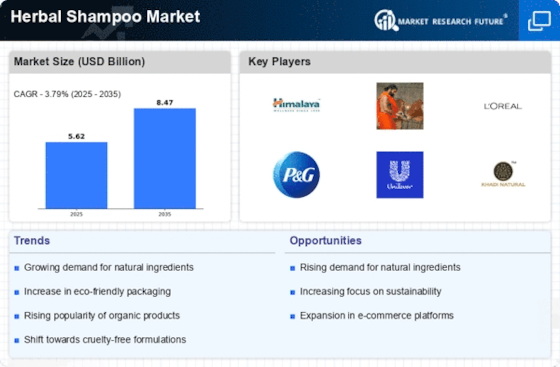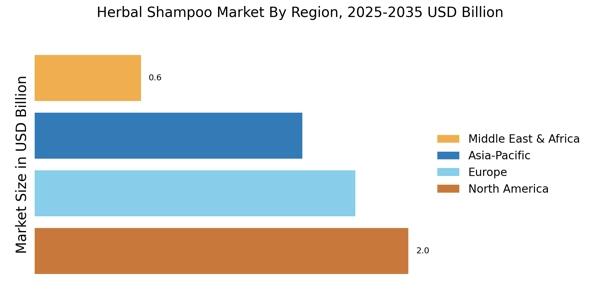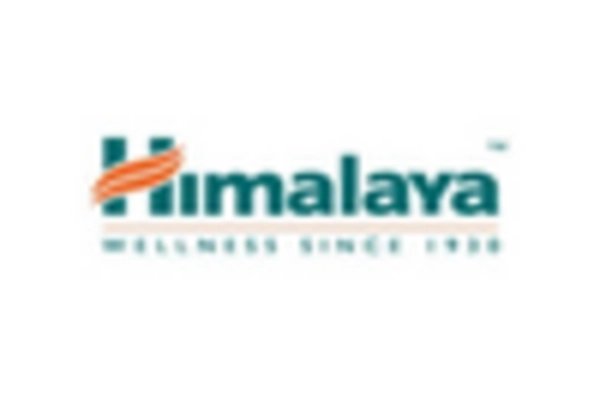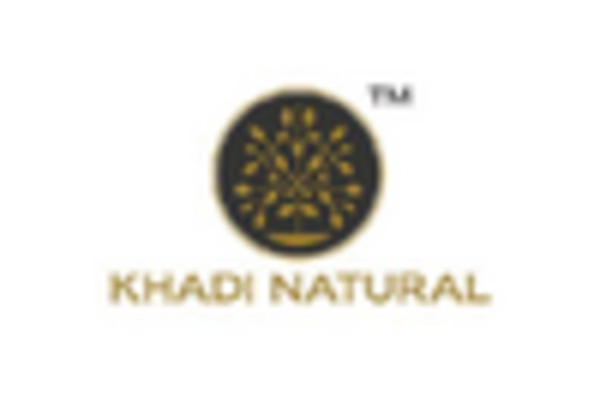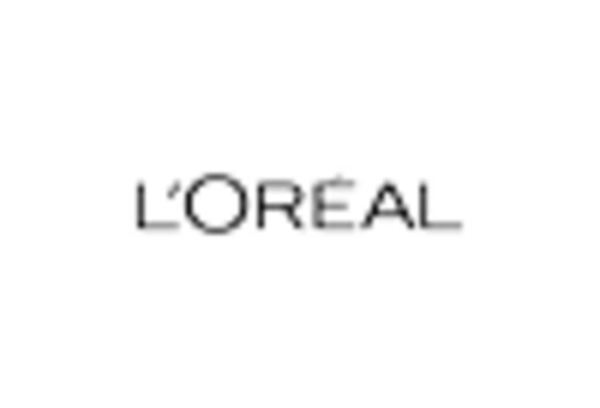Sustainability Trends
The growing emphasis on sustainability and eco-friendly products is likely to propel the Herbal Shampoo Market forward. Consumers are increasingly inclined to choose products that align with their values, particularly those that promote environmental responsibility. This trend is evident in the rising popularity of herbal shampoos, which often utilize biodegradable ingredients and sustainable packaging. Market data suggests that brands focusing on sustainability have experienced a boost in consumer loyalty and sales. As the Herbal Shampoo Market continues to evolve, companies that prioritize eco-friendly practices may find themselves at a competitive advantage, appealing to a conscientious consumer base.
Diverse Product Offerings
The diversification of product offerings within the Herbal Shampoo Market is likely to attract a broader consumer base. Companies are increasingly formulating shampoos that cater to specific hair types and concerns, such as dandruff, dryness, or color-treated hair. This tailored approach appears to resonate well with consumers, as they seek solutions that address their unique needs. Market data suggests that brands offering a variety of herbal shampoo formulations have experienced increased sales and customer satisfaction. As the Herbal Shampoo Market continues to expand, the ability to provide diverse and specialized products may prove essential for brands aiming to capture and retain market share.
Influence of Social Media
The role of social media in shaping consumer preferences cannot be understated, particularly in the context of the Herbal Shampoo Market. Platforms such as Instagram and TikTok have become vital channels for beauty influencers to promote herbal products, showcasing their benefits and effectiveness. This digital word-of-mouth marketing appears to significantly impact purchasing decisions, as consumers are more likely to trust recommendations from influencers they follow. Market data indicates that brands leveraging social media effectively have seen substantial growth in their customer base. Consequently, the Herbal Shampoo Market is increasingly influenced by online trends and consumer engagement through social media.
Growing Consumer Awareness
The increasing awareness among consumers regarding the harmful effects of synthetic chemicals in hair care products appears to be a significant driver for the Herbal Shampoo Market. As individuals become more informed about the potential side effects of conventional shampoos, they are likely to seek alternatives that are perceived as safer and more natural. This shift in consumer behavior is reflected in market data, which indicates that the demand for herbal shampoos has surged, with a notable increase in sales over the past few years. The Herbal Shampoo Market is thus witnessing a transformation, as brands adapt their offerings to meet the rising expectations for natural and organic ingredients.
Rise of Organic Certification
The rise of organic certification standards is emerging as a crucial driver for the Herbal Shampoo Market. As consumers become more discerning about the authenticity of natural products, the presence of organic certifications can enhance brand credibility and trust. This trend is reflected in market data, which shows that products with recognized organic labels tend to command higher prices and consumer interest. Brands that invest in obtaining these certifications may find themselves better positioned within the competitive landscape of the Herbal Shampoo Market, as they cater to a growing segment of health-conscious consumers seeking verified natural options.


